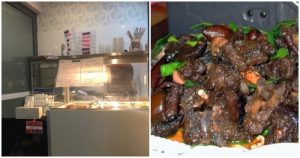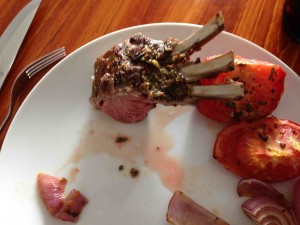Akshay Pai of Meaww writes that an Indian restaurant in Perth, Australia, has been fined $13,000 by health inspectors after they found ‘pet meat’ in its kitchen premises.
 The Department of Health published a notice online, stating that Kopikaran Krishnasamy and Kalaiamutham Pty Ltd, trading as Cafe Marica was guilty of breaching food regulations this past February.
The Department of Health published a notice online, stating that Kopikaran Krishnasamy and Kalaiamutham Pty Ltd, trading as Cafe Marica was guilty of breaching food regulations this past February.
According to the Daily Mail, when the City of Gosnells food safety inspectors visited the restaurant, located in Perth’s southern suburb of Canning Vale, they found 15 kilos of mutton marked ‘Pet Meat – Not Fit For Human Consumption’ opened and being processed in the kitchen.
Cafe Marica was handed down a hefty fine for failing to comply with food safety regulations — $12,000 for court costs and an additional $1382.30 in costs for failing to prevent pet meat being handled in premises where food was sold. However, it is unclear whether any of the pet meat was served to a customer in the restaurant. Speaking about the case, City of Gosnells chief executive officer Ian Cowie said, “The breach related to the fact that pet meat was found at premises where food was prepared and sold for human consumption. Some of the meat was being processed by Mr. Krishnasamy, however, the City had no evidence that the pet meat was for consumption by customers.”
In a statement, owner Krishnasamy defended his restaurant and insisted that the mix-up was because of a new supplier. “We believe our mistake was trusting our supplier blindly and going ahead with the purchase back in February 2018,” he wrote on Facebook. “Since then, we have immediately discontinued purchases from the supplier and stepped up our hygiene practices.”


